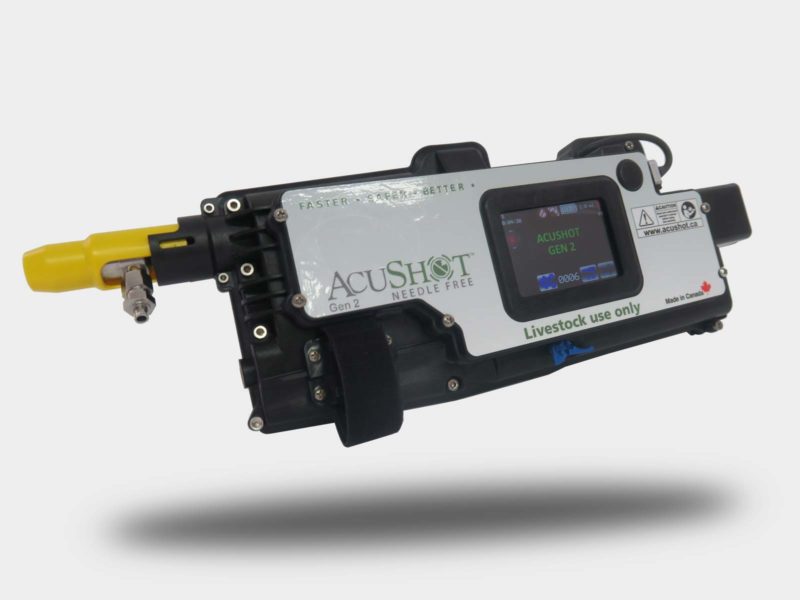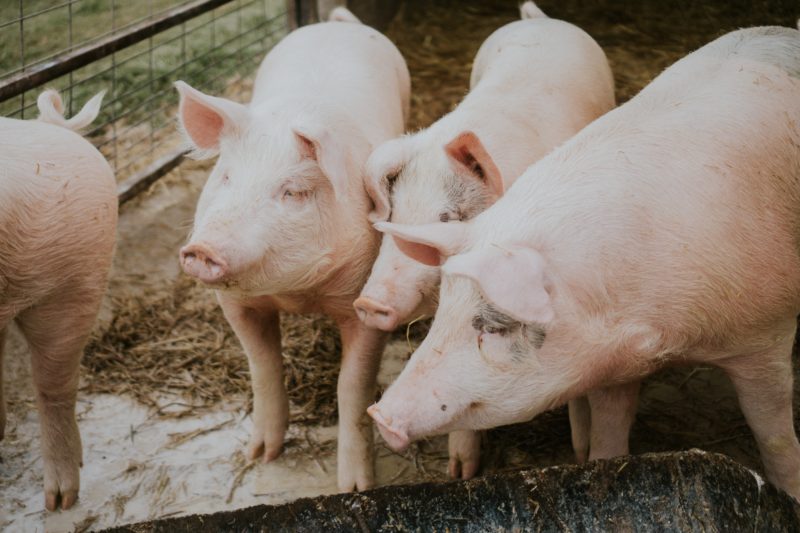Banff, Alta., Jan. 20, 2011: Three Canadian pork industry representatives were honored for their innovative solutions to pork production challenges at the 2011 Banff Pork Seminar, held Jan. 18-21.
The winners of this year’s F.X. Aherne Prize for Innovative Pork Production include JulesPoiron and Warren Toles of Manitoba-based AcuShot Inc., George Stahl of Veteran Colony in Alberta and Steve Brandt of Steve’s Livestock Transport, also based in Manitoba.
“The innovations developed by each of this year’s award winners are important contributions to the pork production industry,” says Ruurd Zijlstra of the University of Alberta, chair of the F.X. Aherne prize committee. “This award is an opportunity for the industry to recognize those individuals who have developed either original solutions to pork production challenges or creative uses of known technology.”
The awards are named after the late Dr. Frank Aherne, a professor of swine nutrition and production at the University of Alberta in Edmonton and a major force for sciencebased progress in the western Canadian pork industry.
“Dr. Aherne was the driving force behind a number of innovations that have benefitted the pork industry for decades,” says Zijlstra. “These awards honor his contribution and the spirit of innovation he represented.”
Poiron and Toles earned the award for their development of AcuShot, a new technology used for needle-free vaccination. It offers reliable, accurate vaccination using power cylinder technology, which is compressed by a patented motorized mechanism. It also features onboard digital capacity to monitor injection quality.
Pork operations can use AcuShot for both spot treatments of single animals and massvaccinations of large populations. The battery-operated, handheld injector can be used on a hands-free stand for smaller livestock or with a remote injection hand piece for easy use with larger livestock.
Veteran Colony near Veteran, Alta., was awarded the prize for the colony’s design of an improved loading facility. The new design makes loading easier and more efficient both for the animals and staff, resulting in reduced animal stress and improved loading times. The main component is a changeable ramp that reduces the level of incline required for the hogs to be loaded on both upper and lower decks of the shipping trailer.
Under this system, the colony has cut its loading time in half, from 35 minutes to 15 minutes for 190 hogs, and the hogs only require very minimal encouragement to move on the trailer. Loading hogs now requires only one person where before it required two or three people. The ramp operates with counterweights so one person can shift it from top deck loading to bottom deck loading.
Brandt’s achievement was the development of a unique “water-loading” trailer that allows for more space to be used by the animals and an improved system for regulating temperature. It’s called water loading because with its unique design water settles equally in each of its sections. A key feature of the design is axles that are set two feet further forward than those on most livestock trailers.
The trailer also has a six-foot wide side-unloading door in addition to the standard rear door. The side door means less distance to the exit and twice the space for animals to move through. The unit also has a “Muggy Mister System” sprinkler system to keep animals cool on hot days – it combines mist with water to push hot air out of the trailer.
Held since 1972 in Banff, Alberta, the Banff Pork Seminar is coordinated by the Department of Agricultural, Food and Nutritional Science, University of Alberta, in cooperation with Alberta Pork, Alberta Agriculture and Rural Development and other pork industry representatives from across Canada. Program and proceedings of the Banff Pork Seminar are available on the Seminar Web site, www.banffpork.ca




